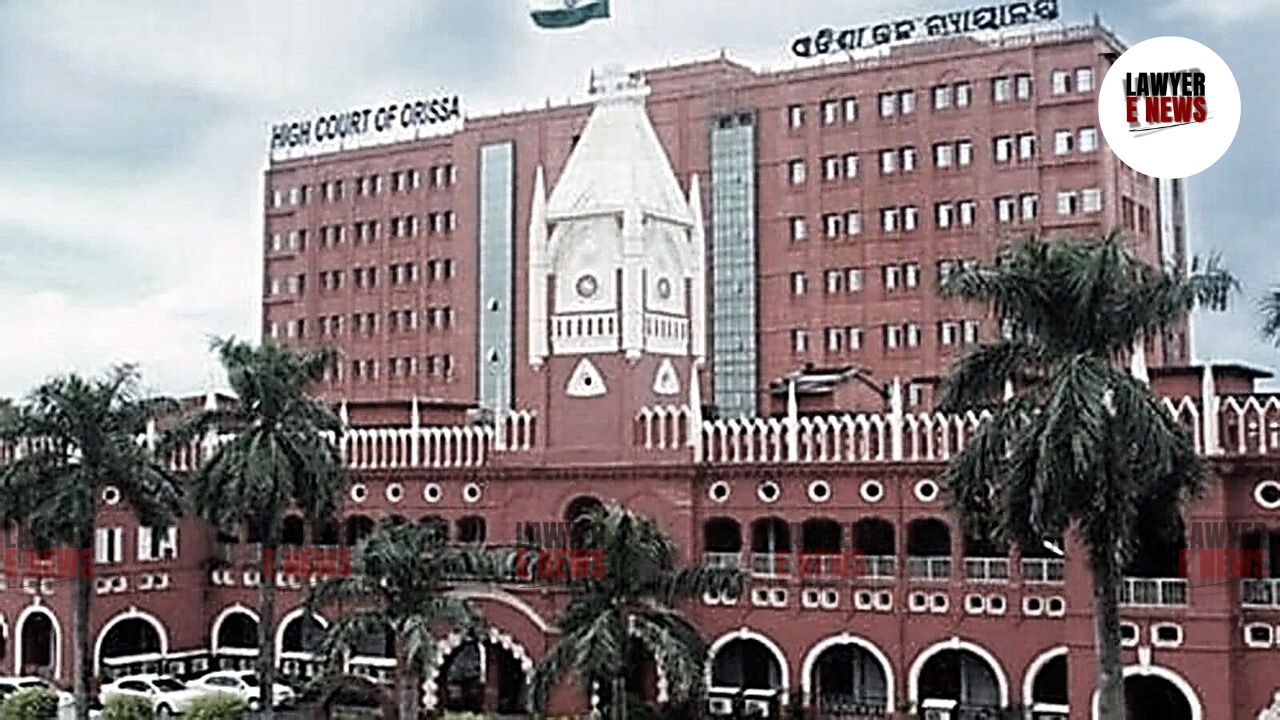-
by Admin
15 February 2026 5:35 AM



"Prescribed Qualifications Must Conform to UGC Norms; Deviation Violates Statutory Standards" – Orissa High Court quashed recruitment advertisements issued by the State Selection Board (SSB) for the appointment of lecturers in non-government aided colleges in Odisha. The court held that the qualifications prescribed in the advertisement were inconsistent with the mandatory University Grants Commission (UGC) Regulations, 2018, which stipulate National Eligibility Test (NET) or Ph.D. as minimum eligibility criteria for such posts.
While allowing the selection process for the Physics discipline to proceed on equitable grounds, the court categorically directed that all future recruitment processes must comply with UGC norms. "The qualification prescribed by the UGC, which includes NET or Ph.D., is mandatory for all teaching positions, including non-government aided colleges. The reliance on the outdated 1989 resolution is untenable in light of the state's subsequent adoption of UGC norms through its 1999 and 2016 resolutions," the court emphasized.
The dispute arose when the SSB issued an advertisement on September 11, 2023, inviting applications for lecturer posts across various disciplines. The advertisement prescribed a Master’s degree with 55% marks as the minimum eligibility requirement, without mandating NET or Ph.D., as required under the UGC Regulations.
The petitioner, Dr. Amiya Rajan Barik, challenged the advertisement on the grounds that it violated the UGC Regulations, 2018, which have statutory force under the University Grants Commission Act, 1956. He further contended that the state government, through its 1999 resolution, had adopted the UGC qualifications, making them binding on all aided colleges in Odisha.
The respondents argued that the 1989 state resolution, which prescribed a Master’s degree with 55% marks as the qualification for lecturers, was still in effect. They also claimed that NET and Ph.D. qualifications were not mandatory for recruitment in non-government aided colleges.
Justice Satapathy held that the UGC Regulations, being subordinate legislation enacted under the UGC Act, 1956, have statutory force and must prevail over any conflicting state law. Citing earlier rulings by the Supreme Court, the court observed, “In case of conflict between state legislation and UGC Regulations, the latter must prevail under Article 254 of the Constitution, as the subject of education falls within the Concurrent List.”
Referring to the state’s own resolutions, the court stated that the government had explicitly adopted UGC qualifications through its 1999 resolution. "The qualifications prescribed in the advertisement are not in consonance with the minimum standards set by the UGC and adopted by the state. Any recruitment made on the basis of such an advertisement is invalid in the eyes of law," the court declared.
The court further noted that the designation of "Lecturer" had been redesignated as "Assistant Professor (Stage-1)" in 2016, making the UGC-mandated qualifications even more pertinent. “The redesignation of the post makes it clear that the qualifications of NET or Ph.D., as stipulated by the UGC, must be applied,” the judgment underscored.
Although the court quashed the advertisements for other disciplines, it allowed the recruitment process for the Physics discipline to be completed. This exception was granted on equitable grounds, as selections in other disciplines had already been completed under the same advertisement before the interim order halting the Physics recruitment was passed.
"Considering that the selection and appointment in all other disciplines have already been made based on the impugned advertisement, equity demands that the selection process for Physics also be completed. However, this cannot be treated as a precedent," the court clarified.
The High Court directed the SSB to issue fresh advertisements for all other disciplines, adhering to UGC qualifications as prescribed under its 2018 Regulations and as adopted by the state through its resolutions. The court explicitly stated that any future recruitment processes that deviate from these standards would be deemed illegal and invalid.
The court concluded: “The Board is required to follow the qualifications prescribed by the UGC Regulations, coupled with the state's resolutions, in all future recruitment processes. Any deviation would compromise the integrity and standards of higher education.”
The judgment extensively referred to precedents that affirmed the mandatory nature of UGC Regulations. In Gambhirdan K. Gadhvi v. State of Gujarat (2022), the Supreme Court held that, “The UGC Regulations are subordinate legislation and must prevail over conflicting state laws.” Similarly, in State of West Bengal v. Anindya Sundar Das (2022), it was observed that appointments contrary to UGC norms are “void ab initio.”
Justice Satapathy also highlighted the principle of equity and public interest while allowing the Physics recruitment to proceed. He relied on Central Council for Research in Ayurvedic Sciences v. Bikartan Das (2023), where the Supreme Court emphasized the discretionary nature of judicial remedies under Article 226, stating, “Even if an action is found to be illegal, the court can refuse to upset it if equity and public interest demand otherwise.”
This ruling reinforces the binding nature of UGC Regulations in recruitment for teaching positions, even in state-aided colleges. By quashing the non-compliant advertisements, the Orissa High Court has set a precedent that ensures higher education standards are not compromised.
The case emphasizes the need for state authorities to align their recruitment processes with national standards to uphold the quality and integrity of education.
Date of Decision: November 13, 2024
